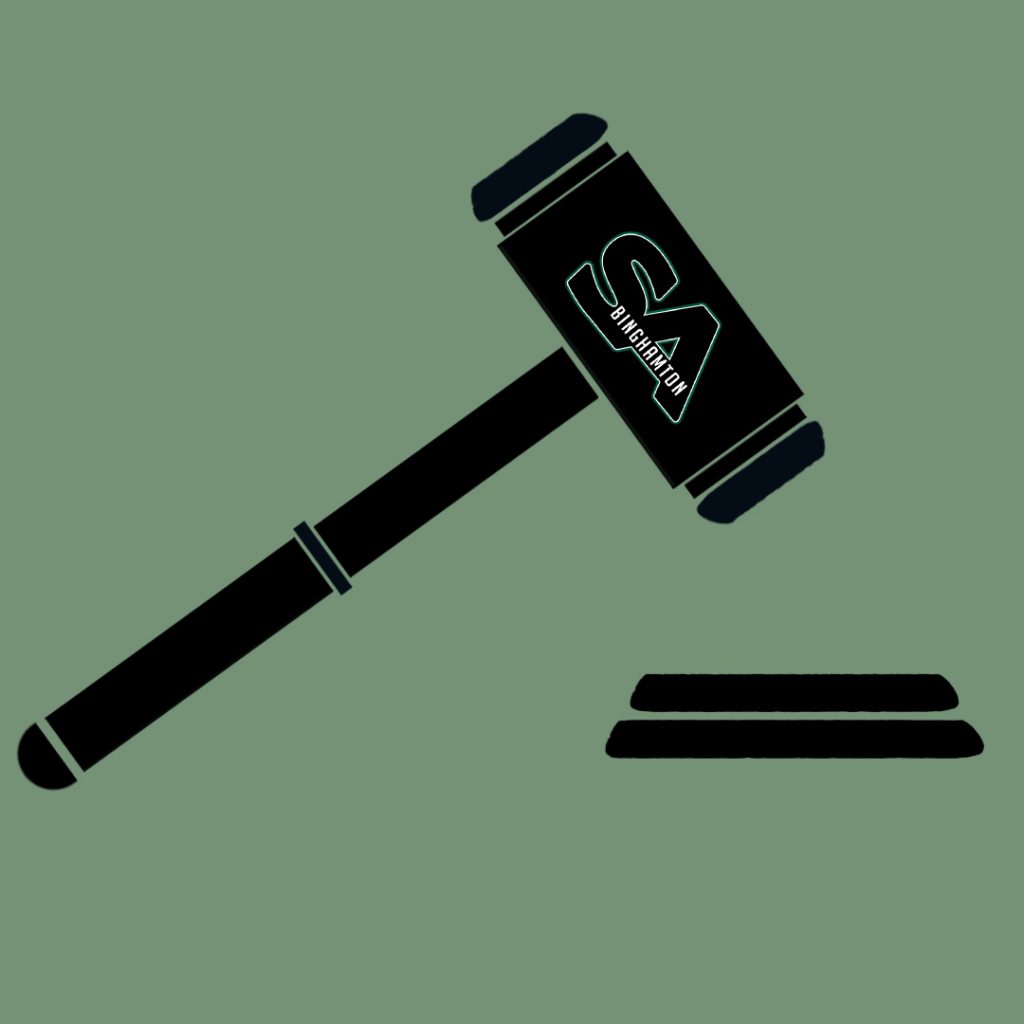A program at Binghamton University appoints advocates to aid students who are called for conduct hearings.
The initiative, called SA Advocates, was created by BU’s Student Association (SA) so students facing conduct hearings can have representation to assist them through the process. This assistance is provided by students who applied with the intent of being a supportive alternative to an attorney, according to the SA website. The group is overseen by the vice president for student success (VPSS).
According to the SA Advocates’ Facebook page, which was created in 2017, the program’s objective is to ensure due process and fair resolutions during the conduct process when there are code violations or conflicts. The initiative aims to ensure that students know their rights and acknowledge rules during hearings.
Kara Chadwell, the director of the SA Advocates and a junior double-majoring in human development and philosophy, politics and law, gave more insight into the program’s motivations.
“The [Student] Advocates program was created to ensure students had fair representation through every stage of the conduct process,” Chadwell wrote in an email. “The main goal of the program is to provide students with an outlet, to inform students of their rights and reach as many students as possible to ensure they know that they are entitled to representation under the Code of Conduct.”
Chadwell explained that students always had the right to counsel according to University policy, and that this inspired the creation of a program that provides students with said representation. The SA Advocates make representation free for students who are unable to pay for an attorney. Luca Cassidy, the chief of staff to the VPSS and a sophomore majoring in economics, added that preventing students from incriminating themselves was a major goal.
Regarding the internal structure of the program, Chadwell explained that the SA Advocates typically has one or two directors taken through the VPSS’ office, each overseeing five to 10 advocates. The advocates undergo training before taking any cases. Once training is completed, the student advocates have the ability to take cases when they are presented.
Cassidy, also the incoming VPSS, added that he planned to work alongside the SA Advocate head, explaining that promotion of the program would be essential so students know their options if they are in trouble. Chadwell added to this, saying that in the future, the program hopes to take on more cases when students start to become more aware of their rights.
Nicole Luparello, a junior majoring in biology, raised some concerns about the program.
“I think it sounds like a good idea,” Luparello said. “It might make people skeptical because of [the advocates’] experience and qualification. I feel like there should be a way to ensure they are qualified.”
Sam Lefton, a junior majoring in psychology, said she feels the initiative could be supportive for students who make use of it..
“It sounds like it would be a useful resource to have,” Lefton said. “If it’s proving beneficial for those who [are] involved in it, then we should continue on with it.”



